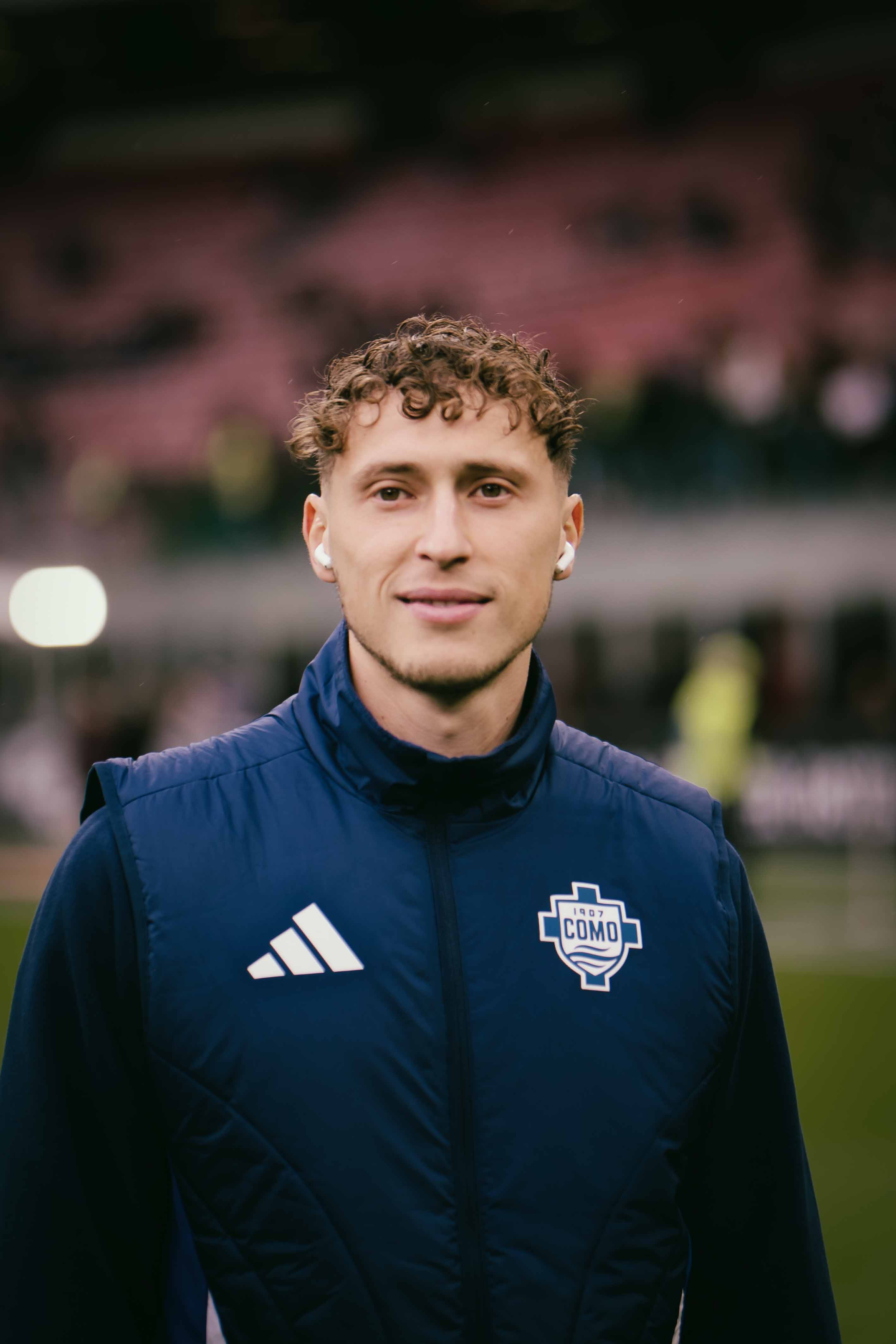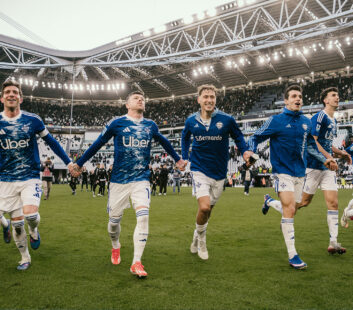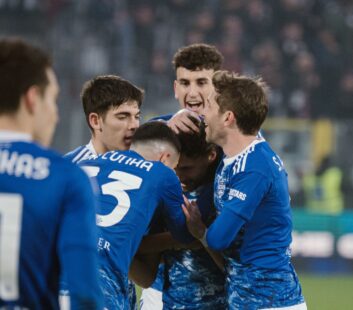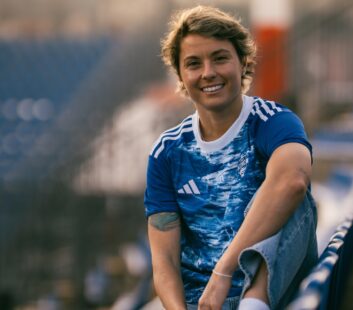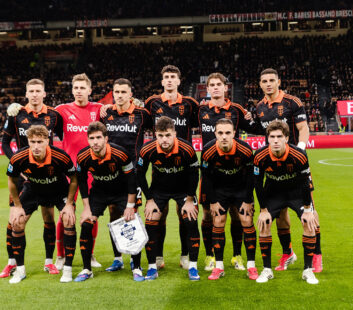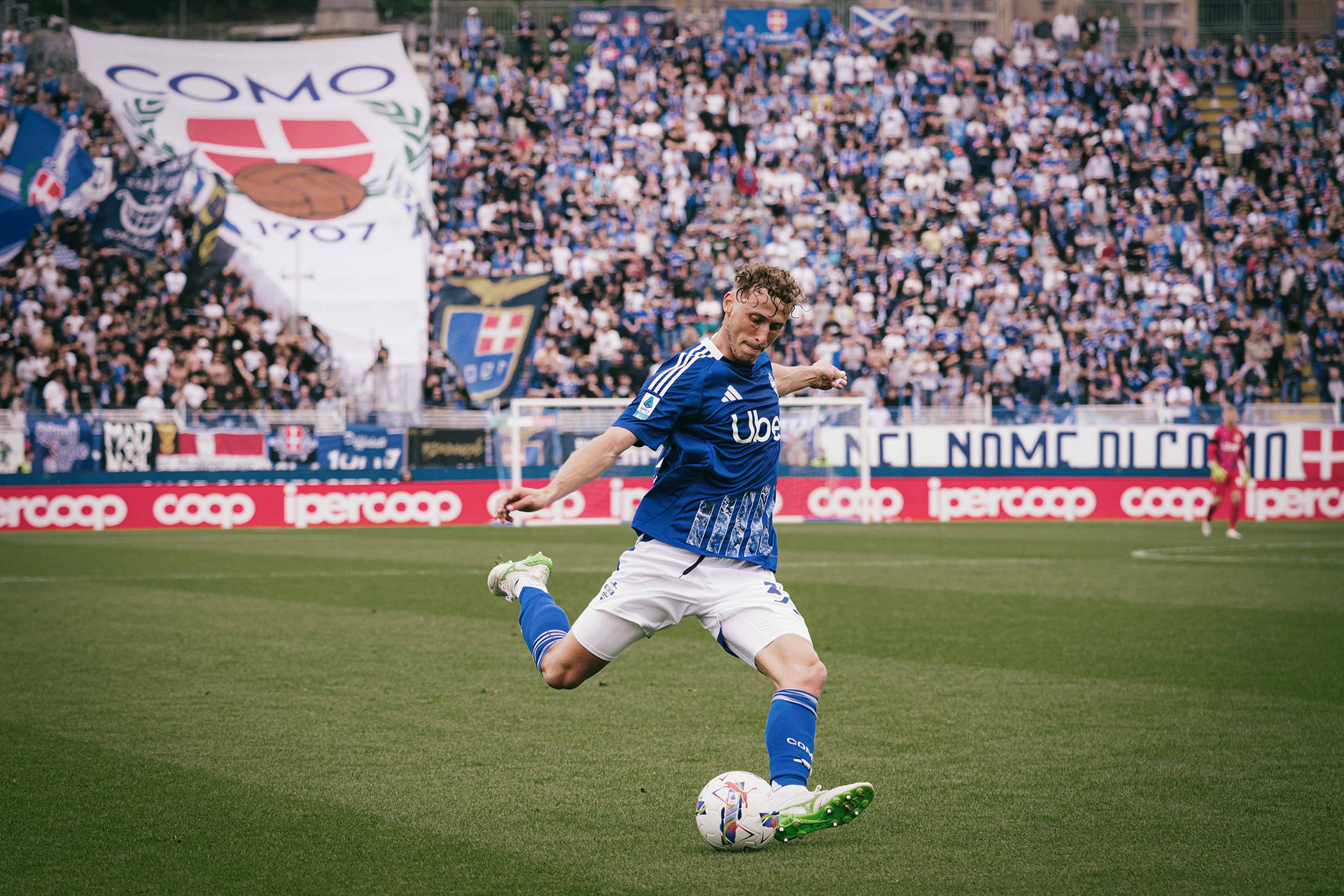
FOOTBALL
Getting to Know Mërgim Vojvoda
When Mërgim Vojvoda pulls on the Como 1907 shirt, he’s not just filling a role in the back line. He’s bringing with him over 300 games of professional experience, a deep understanding of what it means to fight for a place, and a story that stretches from the streets of Liège to Serie A via injury setbacks, European dreams, and a chance meeting in a stadium corridor with one of football’s greatest passers.
At 30, he’s new to Como but far from new to football.
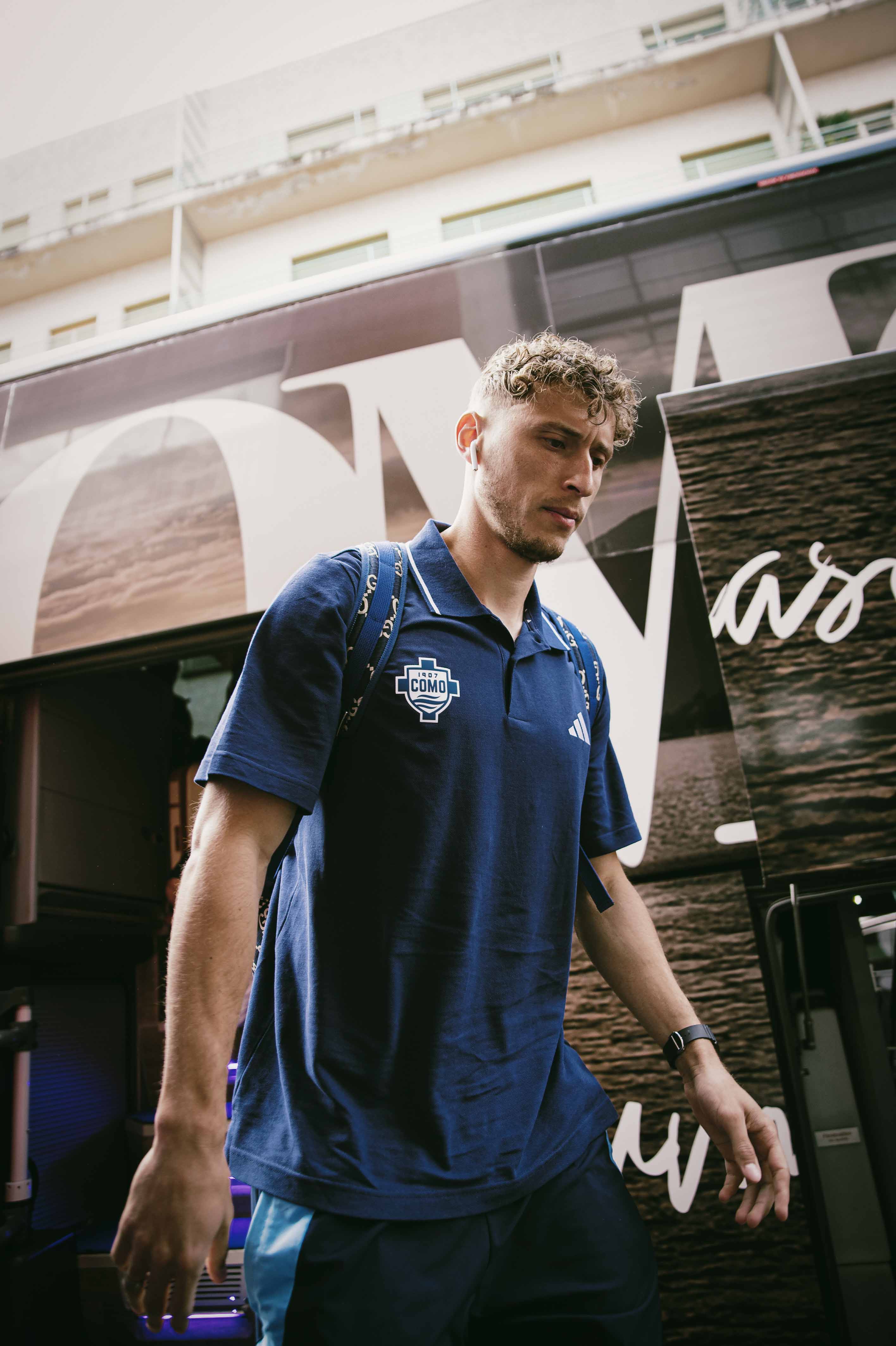
From Injury Table to Matchwinner
“It was honestly a great feeling,” Vojvoda says, recalling the match against Torino—his former club—in which he delivered one goal and two assists in just his third start for Como. “I arrived here injured, so I really wanted to give back to the club the trust they put in me. Not everyone would take a player who’s not healed yet. But they believed in me.”
It wasn’t easy. After his initial injury, Vojvoda was sidelined again by a back problem. But his return to form has been impressive—especially considering he’s doing it in front of some very high-profile supporters.
“You see personalities like Thierry Henry in the stands, players who made football history—it’s always a pleasure. He came to watch training the day before the match, and we spoke briefly. But even a few words with someone like that is special. I have enormous respect for him.”
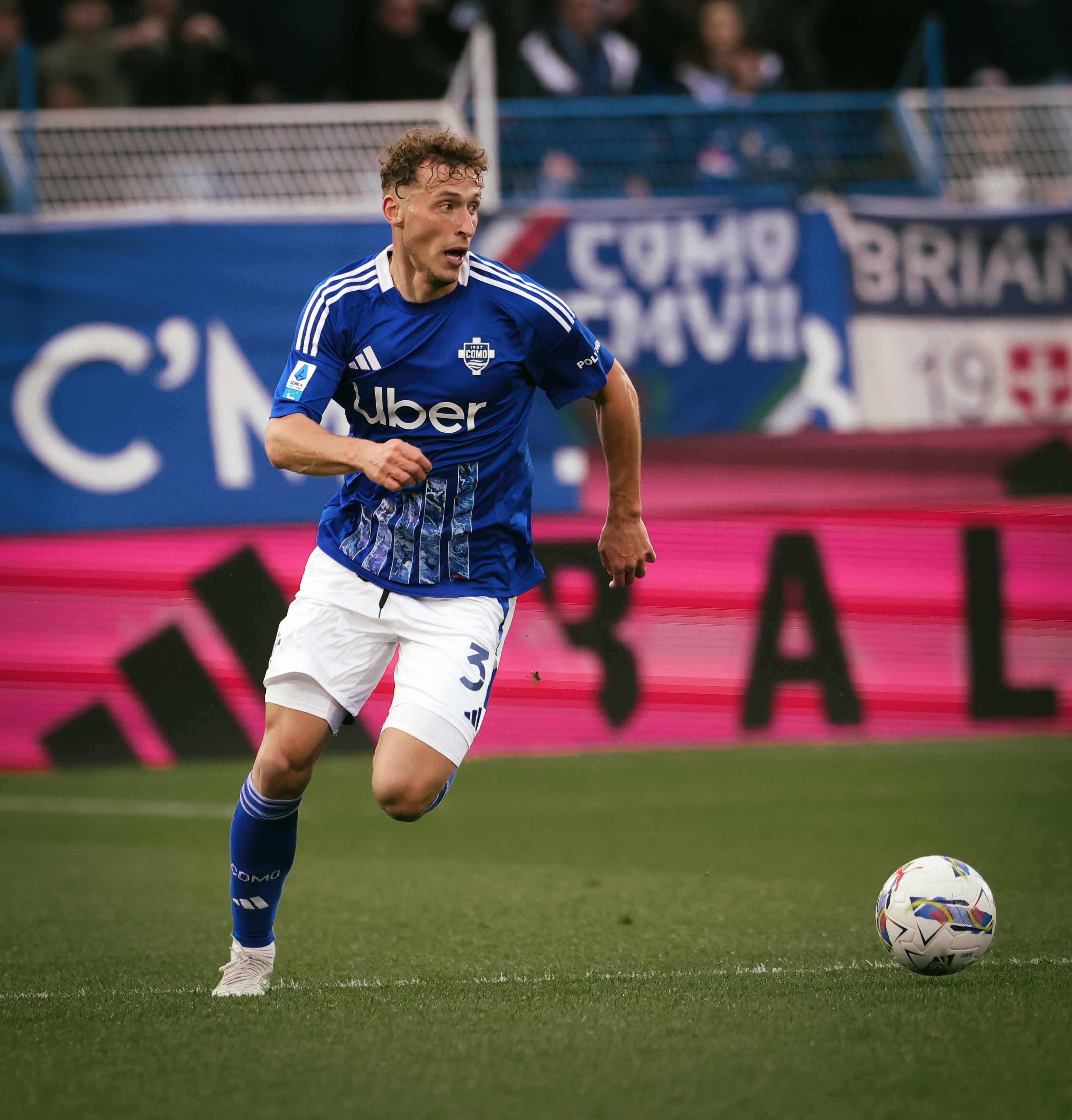
Fabregas and the Full-Back Revolution
So what’s behind his sudden offensive explosion?
At Torino, Vojvoda played primarily as a right-sided defender in a three-man back line. “I wasn’t very offensive there,” he says. “The coach appreciated me for my play with the ball, but the system was more conservative.”
Como, under Cesc Fàbregas, offers something different: a full-throttle, possession-based style that suits the Kosovan international. “Here, we play with four at the back—more offensive… The coach wants us to keep the ball, work technically, and it allows us to project forward. I try to give my best for the team.”
Working with a coach like Fàbregas, one of the most intelligent midfielders of his generation, is proving transformative.
“He has a great personality and is a genuinely nice person. You learn a lot. It’s a very Spanish style—he teaches you to move, play fast, look before receiving. That gives you a huge advantage. I’m a player who likes to touch the ball, so this really helps me progress.”
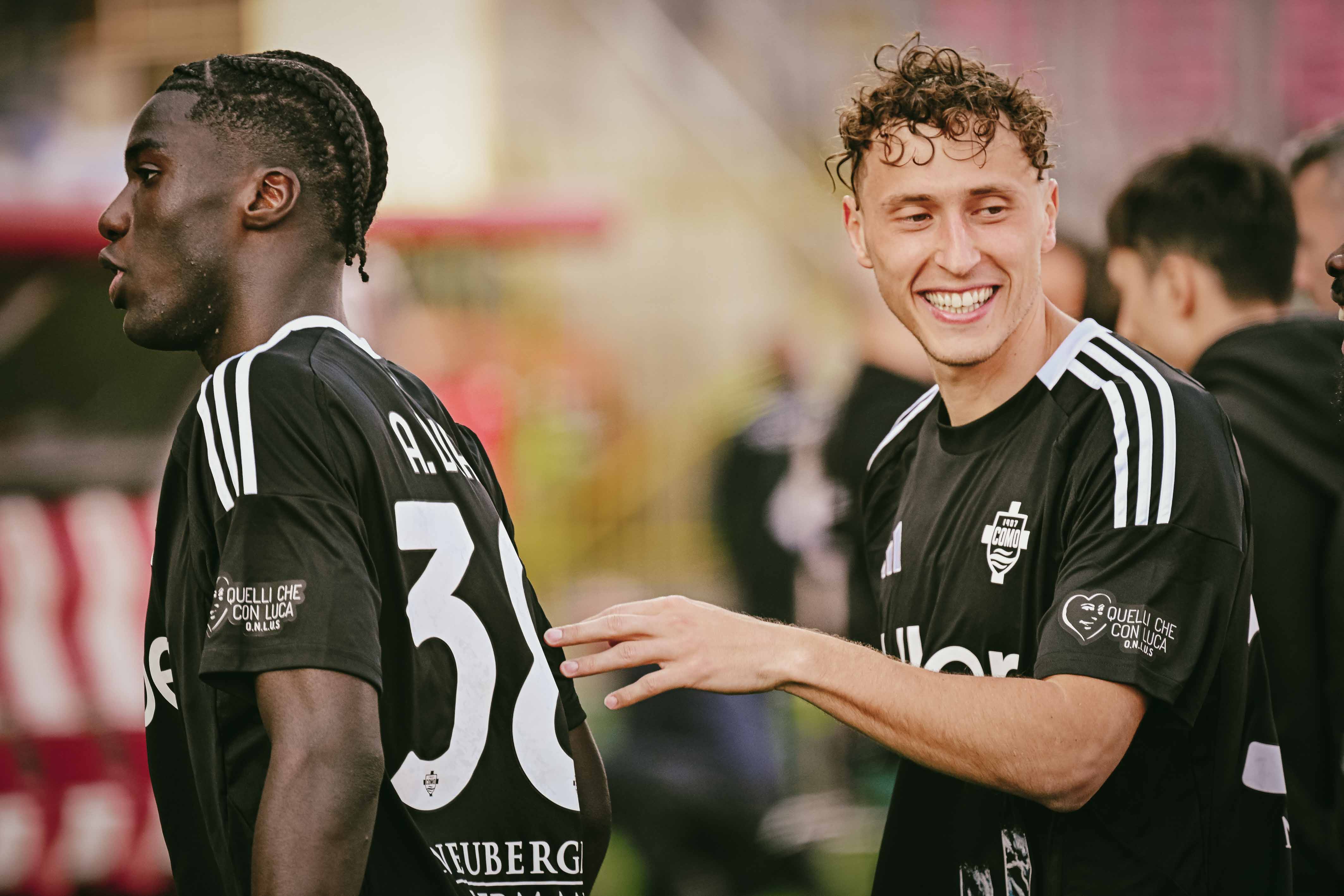
A Squad With Soul
VVojvoda is impressed by the ambition he’s found at Como—a club, as he puts it, “with a different soul.”
“There is a lot of quality here. When you hear about the project, what they’re putting in place, it’s going at an incredible speed. And you can feel that they really want to do something great.
“When you see the players they bring in – many loans from Barcelona, Real Madrid, very promising youngsters – it’s impressive. And that shows their ambition to grow the club. The infrastructure, the new stadium… everything is going very fast.
“And then, they also bring in experienced players. Because young people need to be supported by people like Sergi. They are winners. Even the coach, that’s what he transmits: the mentality of a winner. And you can feel the change immediately. Even after a win, you don’t have to be too happy, because for them it’s normal to win. It’s routine. And that teaches you a lot.”
So how did he end up here?
“I was ready to sign a new four-year contract. But there were complications, because the sporting director had not yet been confirmed.
“In the meantime, we played against Como in Turin. Halfway through the game, Cesc came to talk to me in the corridor. He said: ‘Do you want to come to us?’ I thought: ‘Huh?’ And he asked me: ‘Do you like the way I play?’ I replied: ‘Yes, honestly, I like it.’ He told me that he wanted me from the moment he arrived. And I thought it was for the summer, so I said, ‘Let’s see.’
Then I injured my calf. In the meantime, the sporting director of Torino was confirmed, he told me he wanted to continue with me… but honestly, I was no longer convinced. Because I had taken a risk by playing the last six months without a contract. And I think that if a big injury had happened to me, they wouldn’t have come to renew me. So that cooled me down a bit.
And two days before the end of the market, my agent (my brother) called me: ‘Let’s go to Como.’ I replied: ‘OK, for the summer?’ He said: ‘No, now.’ I was injured, but they still wanted me. And honestly, I was very pleased.”
A Career of Milestones
VVojvoda has come a long way since those first kickabouts in the streets of Pironchamps.
“If someone had told me, as a kid in Liège, that I’d play more than 130 Serie A games, I wouldn’t have believed it. But I always believed in myself. I took the hard path—loans, a season in German fourth division—but I knew I’d make it if I worked hard. I’m proud of my journey. And just because I’m 30 doesn’t mean I’m done.”
He’s had near misses with some of Italy’s biggest clubs.
“Before Torino, I was supposed to go to Atalanta—but Standard asked for too much money. Then there were talks with Maldini about joining Milan. That didn’t happen. And two years ago, it was almost done with Napoli. But after they won the title, everything changed. The coach and sporting director left. So I stayed in Turin—and I think I did well there.”
The Belgium Chapter
Despite his Belgian upbringing and passport, Vojvoda never felt fully embraced by the national team setup.
“In Belgium, I felt like I wasn’t seen as fully Belgian. I was born there, grew up there, had to settle there—but I felt like an outsider. I would’ve considered playing for Belgium if I’d been given the chance.”
Instead, he made history with Kosovo.
“I started in 2018, just after they were recognised by FIFA. We’ve got a good generation coming through. We want to qualify for a big tournament—but we need time. We’re still building that football culture. But I think I started that story. And we’re writing good things now.”
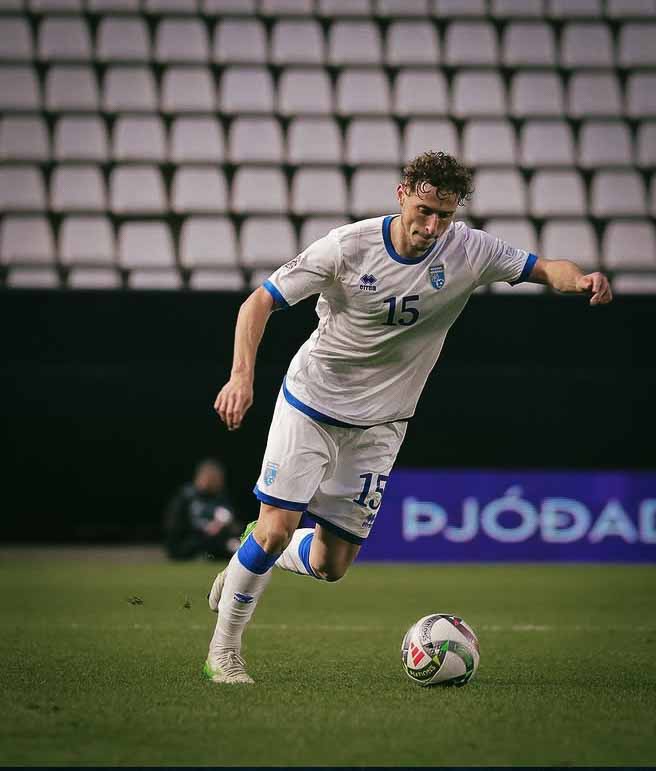
Still Tied to Liège
Though he lives in Milan now and trains between Como and the city, Liège remains home in many ways.
“My parents are there, I still have my house in Liège. All my investments are there—music, real estate. I go back often. It’s important to me.”
And his long-term future?
“I don’t know. I’ve already done what I had to do in Belgium. I like Italy—how they play, how they think. I’m happy here.”
From Pironchamps to Como, Vojvoda’s career is proof that belief, hard work, and a little footballing conversation in a stadium tunnel can take you exactly where you’re meant to be.
